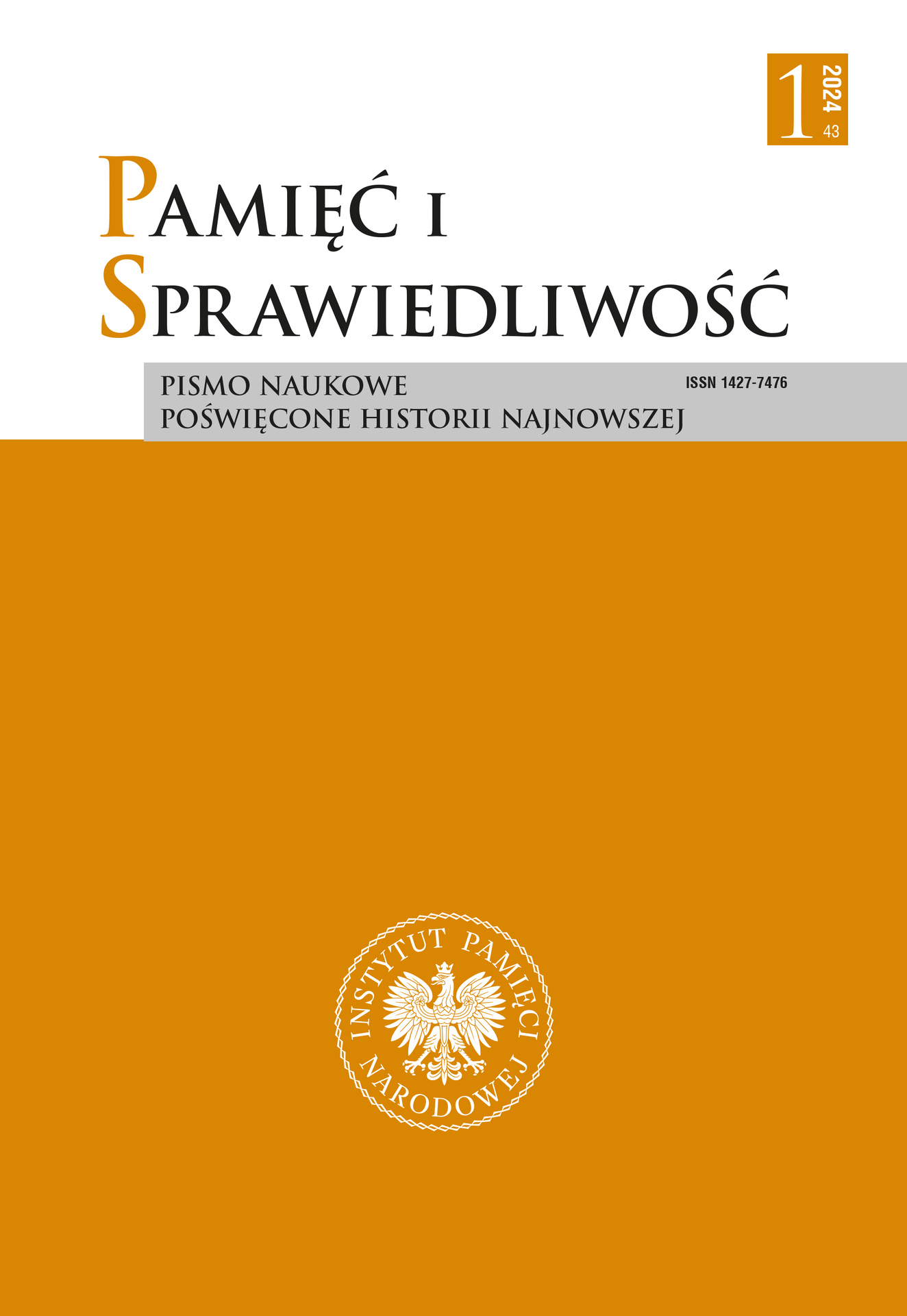Działalność wymiaru sprawiedliwości w sprawach politycznych w stanie wojennym
Activities of the Judiciary in Political Cases under Martial Law
Author(s): Grzegorz MajchrzakSubject(s): Law, Constitution, Jurisprudence, History of Law, Post-War period (1950 - 1989), Administrative Law
Published by: Instytut Pamięci Narodowej
Keywords: justice system; Martial Law; repression
Summary/Abstract: After the imposition of martial law the judiciary was “cleansed” of individuals (includ- ing judges and prosecutors) who had become involved in the Solidarity trade union after its inception, and who, after 13 December 1981, did not recognize this involvement as a mistake and were therefore considered “extremists” by the authorities. This was to restore the rulers’ full control over the judiciary, which under martial law was intended to be used to crack down on the political opponents (opposition activists) and to intimi- date those who were willing to protest against the curtailment of rights. The prosecutors and judges who remained in the profession were therefore subject to virtually constant pressure from the communist authorities (from the Political Bureau of the Central Committee of the Polish United Workers’ Party to the commissars – plenipotentiaries of the Committee for National Defense). As a result, the judiciary became – although not without problems – one of the pillars of martial law regime. However, it is worth noting that this was a “merit” of only a part and not the entire community of prosecutors and judges. Martial law was also, it should be recalled, a period of huge involvement of the military justice system, whose scope of action was significantly increased, including entrusting it with a conciderable portion of the most important political cases.
Journal: Pamięć i Sprawiedliwość.
- Issue Year: 43/2024
- Issue No: 1
- Page Range: 31-50
- Page Count: 20
- Language: Polish

